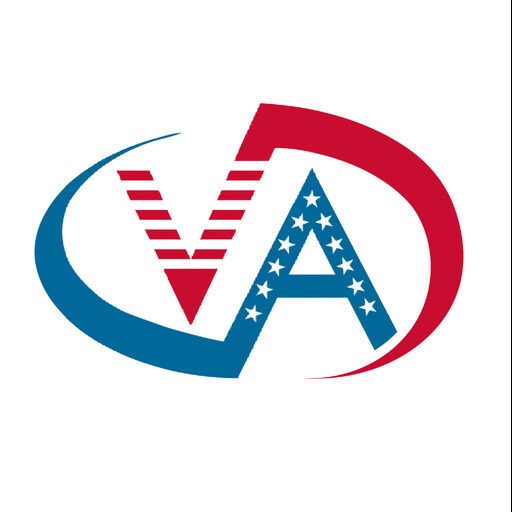The game of real estate has changed significantly with new rules based on a historic National Association of Realtors settlement.
Active-duty military members and Veterans using a VA loan are particularly affected. Sellers used to absorb buyer-agent commissions, but no longer.
So that Veterans won’t be outbid, the VA now permits them to pay these commissions on some terms.
This article covers everything from negotiating fees to leveraging seller concessions so that you’ll understand how to buy a home using a VA loan after commission adjustments. With advance planning, you can optimize your VA entitlements and get the right property.
Key Points
- NAR Settlement Changed Commission Rules: A 2026 legal settlement ended the requirement for sellers to offer preset buyer-agent commissions via MLS, making commissions negotiable and less transparent.
- VA Buyers Previously Couldn't Pay Agent Fees: VA loan rules historically barred Veterans from paying buyer-agent commissions to protect them from predatory practices.
- VA Policy Updated in 2026: In response to the market shift, the VA now allows Veterans to pay “reasonable and customary” buyer-agent fees to stay competitive in tight markets.
- Buyers Now Have Three Options: VA buyers can negotiate commission payment in one of three ways—seller pays, buyer pays in cash at closing, or the cost is split between both parties.
- Seller Concessions Still Apply: When structured correctly, the seller can cover agent fees without counting toward the 4% VA concession limit, preserving other benefits.
- Planning and Budgeting Are Crucial: Veterans may need to plan for a 2.5%–3% commission out-of-pocket, so they should negotiate with agents, seek seller help, or adjust their offer price accordingly.
- Market Trends Could Lower Commissions Over Time: As consumer choice grows, competition may push buyer-agent fees down, and flat-fee or à la carte agent services may become more common.
- VA Loan Advantages Still Strong: Despite commission changes, VA loans still offer zero down payment, no PMI, and competitive rates—making them one of the best tools for Veteran homebuyers.
- The Background: NAR Settlement and Its Effect on Commissions
The shift in how commissions are handled was largely prompted by a major settlement involving the National Association of Realtors (NAR). In 2026, several antitrust lawsuits claimed that the traditional commission structure—where sellers typically paid a 5–6% fee split between listing and buyer’s agents—kept costs artificially high. According to CNBC, the settlement effectively removed the requirement that sellers must blanket-offer a certain percentage commission to buyer’s agents through the Multiple Listing Service (MLS).
As a result, once the settlement terms took effect, MLS listings no longer automatically disclosed buyer-agent commissions. This gave buyers and agents more freedom to negotiate fees among themselves. At the same time, it shifted some potential financial burden to buyers, since sellers could opt not to pay the buyer’s agent fee. While many homebuyers simply renegotiated contracts to include that cost elsewhere—like in the sale price or concessions—Veterans using VA loans were caught in a bind. Why? Because, traditionally, VA rules prohibited the Veteran-buyer from covering broker fees directly.
VA’s Policy Update: Leveling the Playing Field
To address the dilemma created by the NAR settlement VA loans changes, the VA temporarily adjusted its policy in August 2026. Historically, VA buyers could not pay their agent’s fees. The logic was to protect Veterans from predatory costs, ensuring that the seller or another party covered the buyer-broker commission. However, with the market evolving, and some sellers no longer willing to foot the bill, the VA recognized the need for new guidelines. According to news.va.gov, the new rules allow Veterans to pay a reasonable buyer-agent commission if it helps them secure a home in a competitive environment.
This updated guidance aims to ensure VA buyers remain just as attractive to sellers as conventional or FHA buyers. By granting you the option to cover your own agent’s commission, the VA effectively closes a gap that might otherwise exclude Veterans from certain transactions. While the VA still wants to protect borrowers from unreasonable fees, the new rule ensures you have the flexibility to negotiate commissions in the same way as other buyers. For official documentation, see VA Publications.
Real Estate Commission Changes VA Loans: Key Concepts to Know
Before delving deeper into strategies, let’s clarify some terms you’ll see frequently:
- Buyer-Agent Commission: The fee paid to the agent who represents the buyer in a real estate transaction. Traditionally covered by the seller, it usually falls between 2.5% and 3% of the sale price, but it’s fully negotiable.
- Seller Concessions: In a VA loan context, sellers can pay up to 4% of the home’s purchase price toward the buyer’s allowable costs. This might include closing costs, prepaid expenses, or even paying off judgments. Crucially, commissions can still be negotiated as part of these concessions under certain circumstances. Check HUD guidelines for broader closing-cost rules.
- Buyer-Broker Agreement: A contract between a homebuyer and a real estate agent that outlines the commission rate, the scope of work, and who pays the fee. After the settlement, many MLSs require these agreements to be signed before showing properties.
- Reasonable & Customary Fees: The VA still insists that any commission paid by a VA buyer must be “reasonable and customary” for the area, preventing overcharging. Consumer Financial Protection Bureau (CFPB) guidelines also advocate transparency and fairness in real estate transactions.
Seller Concessions VA Loan Commission: A Powerful Negotiation Tool
While the new rules allow you to pay your own agent, they don’t require you to do so. In many cases, you can still ask the seller to cover the buyer-agent commission. If the seller agrees, it could come out of the sales proceeds at closing. One advantage for VA loans is that the VA does not count commission coverage toward the 4% seller concession limit if structured correctly. That means the seller could pay for your agent’s commission and still contribute up to 4% of the purchase price toward other allowable expenses.
However, you should be aware that in a hot market, sellers might be less inclined to offer these concessions if they have multiple offers. A tactic some buyers use is to increase their offer price slightly to offset the commission. For instance, if you plan to offer $300,000 and the agent’s fee is $7,500, you might offer $307,500 with a $7,500 credit toward commissions. As long as the home appraises for $307,500 and the seller agrees, it can be a win-win scenario.
VA Loan Buyer Agent Commission: Who Pays and How
With the new policy, there are essentially three ways the buyer-agent commission can be handled for VA buyers:
- Seller Pays Everything: You can request that the seller cover the entire buyer-agent commission. This is the traditional route, but it depends on market conditions and seller willingness.
- Buyer Pays Everything: If the seller refuses, or if it’s a competitive bidding situation, you can pay the commission yourself. It must be paid in cash at closing; you cannot finance it into your VA loan.
- Split the Cost: Sometimes the seller will agree to partial concessions, and you pay the balance. This shared approach can make your offer more appealing without saddling you with the entire fee.
The key is to ensure the arrangement is outlined in your buyer-broker agreement and the purchase contract, leaving no ambiguity about who’s covering what. Experts at Bankrate recommend having all parties sign off on the terms to avoid surprises at closing.
Paying Realtor Fees with VA Loan: Budgeting and Preparations
Because Veterans might now need to cover the buyer-agent commission, it’s important to factor that cost into your overall homebuying budget. Let’s say you’re purchasing a $400,000 home with a typical 2.5% commission rate. That’s $10,000 potentially coming out of pocket if you have to pay it at closing. When planning your finances, be sure to:
- Ask About Commission Upfront: The buyer-broker agreement should specify the commission rate. If the agent typically charges 3%, consider negotiating down to 2.5% if market conditions allow.
- Seek Preapproval with Potential Commission Costs: Your VA-approved lender should include the estimated commission in your closing cost calculations. This helps avoid last-minute financing issues.
- Analyze Whether Seller Concessions Can Offset Commission: Even partial coverage can dramatically reduce your out-of-pocket expense.
- Maintain a Cash Reserve: With no down payment required for a VA loan, set aside extra funds to handle potential commissions and other closing costs.
It may feel daunting, but remember that VA loans still offer substantial benefits—like no down payment and no private mortgage insurance (PMI). Even if you do end up paying the commission, you’re still saving significantly compared to a buyer using a conventional loan with a 5% to 20% down payment plus PMI.
How to Buy a Home with a VA Loan After Commission Changes
Many Veterans worry these new rules complicate the process. However, the fundamentals remain the same. Here’s a step-by-step breakdown of how to buy a home with a VA loan after commission changes:
- Get Preapproved: Find a lender experienced in VA loans. Provide income, employment, and credit information. Ensure they know about potential commission expenses so they can accurately gauge your qualification.
- Select a VA-Savvy Real Estate Agent: Look for agents who have worked with VA borrowers and understand the updated policy. They can help you negotiate commissions effectively.
- Sign a Buyer-Broker Agreement: You’ll need this document before viewing homes in many areas due to the NAR settlement. It details the VA loan buyer agent commission and states who pays it.
- House Hunting: Tour properties that meet VA Minimum Property Requirements. Keep the potential commission cost in mind, especially if you’re in a seller’s market where concessions might be rare.
- Make an Offer: Decide whether you’ll ask the seller to pay the agent’s fee or handle it yourself. If you’re requesting concessions, specify them in the contract. Consider offering slightly above asking price to encourage the seller to cover the commission.
- Negotiate and Sign: Work with your agent to finalize the purchase agreement. If the seller agrees to cover some or all of the commission, confirm it in writing.
- VA Appraisal and Underwriting: The VA appraiser checks if the home meets VA Minimum Property Requirements. Meanwhile, your lender finalizes underwriting, verifying you can cover commissions if needed.
- Closing: Attend closing to sign final paperwork. If you’re paying the commission, ensure you have the necessary funds in your account. Confirm the Closing Disclosure form accurately lists all costs.
- Move In: Once everything is signed and recorded, you receive the keys. If you negotiated well, you might have minimized or completely avoided a large out-of-pocket commission expense.
VA Loan Closing Costs Commission Changes: Potential Long-Term Effects
It’s still early to measure the full impact of these new rules. According to Military Times, some analysts believe overall commissions could decrease as consumer choice widens and discount brokerages gain a foothold. For now, however, buyer-agent rates remain roughly the same in many regions, averaging around 2.5–3%.
For Veterans, the ability to pay an agent’s fee can actually be a competitive advantage. If you can offer a seller relief from commission costs, your offer might stand out against buyers who still expect the seller to cover it. On the flip side, if you lack the cash to pay a commission at closing, you might need to rely more heavily on seller contributions or else lose out on certain properties. Over time, the market could trend toward more flexible fee arrangements. We may see everything from flat-fee buyer representation to “a la carte” real estate services. Stay tuned to Department of Justice press releases or NAR’s newsroom for ongoing developments.
Tips for Success: Maximizing Your VA Benefits in a Changing Commission Landscape
Despite the changes, VA loans remain one of the most powerful homebuying tools for Veterans and service members. Here are a few final recommendations to make the most of your benefits:
- Shop Around for Agents: Don’t assume every agent charges the same fee. You may find professionals offering lower rates or flat-fee services. Compare their experience with VA transactions before deciding.
- Leverage Competition: If you’re in a buyer’s market, ask the seller to cover commissions. In a seller’s market, prepare for more out-of-pocket spending or use creative offers that roll the commission into the sale price.
- Stay Within Budget: Factor commission costs into your overall financial plan. Even with no down payment, you’ll have closing costs, a VA funding fee (unless exempt), and possibly agent fees.
- Stay Informed: Monitor official channels like VA.gov, CFPB, and NAR.realtor to keep up with any new guidelines or permanent rule changes from the VA.
Ultimately, the new real estate commission rules VA loan policies are about offering transparency and leveling the playing field. While they may feel like a big shift, they simply grant you more choices about how you structure your transaction. Veterans still have the advantage of zero-down financing and the backing of the VA, which often results in competitive interest rates. By understanding these rules, planning your budget, and choosing experienced professionals, you can stay ahead of the curve in any real estate environment.
Frequently Asked Questions
- What caused the new real estate commission rules for VA loans?
A major settlement with the National Association of Realtors ended automatic seller-paid buyer-agent fees. As a result, the VA modified its guidelines to give Veterans the option to pay commissions directly, ensuring VA buyers remain competitive even if sellers refuse to cover agent costs. - Do VA loan buyers have to pay the buyer-agent commission now?
No, they are not obligated to pay the commission. Under updated VA guidelines, Veterans can pay a reasonable buyer-agent fee or negotiate for the seller to cover it. Whether the buyer or seller pays depends on the specific terms of the purchase agreement. - Can Veterans still benefit from zero-down payments when paying commissions?
Yes, the VA loan’s zero-down feature remains intact. If a Veteran chooses to pay the buyer-agent commission, it must be covered in cash or through seller concessions, but cannot be added to the loan amount. Proper budgeting ensures Veterans can still enjoy zero-down financing. - What happens if I cannot afford my agent’s commission at closing?
You can offer a slightly higher purchase price and request seller concessions to cover that fee. Alternatively, consider a lower-cost agent or a flat-fee brokerage. Evaluate all financing options and discuss possible solutions with your lender to ensure sufficient closing funds. - Are these VA commission rules temporary or permanent?
Currently, the VA’s allowance for Veterans to pay their agent’s fee is considered a temporary measure in response to the NAR settlement. The VA may formalize or adjust these guidelines in the future, so it’s wise to stay updated through official VA communications. - Does paying commissions affect my eligibility for a VA loan?
No, it does not affect eligibility. You must still meet VA requirements for service history, credit, and income. These commission updates focus solely on how buyer-agent fees are handled and do not change fundamental VA loan qualification standards. - Can I opt out of using a buyer’s agent to avoid commissions?
Yes, but it is generally not recommended. A buyer’s agent provides essential expertise on VA loan requirements, local market conditions, and negotiating terms. Forgoing professional help might expose you to greater risks or higher overall costs if mistakes occur during the buying process. - How do I verify that an agent’s commission is fair and customary?
Research local market rates, compare multiple agents’ proposals, and consult reputable resources like Bankrate or Realtor.com. The VA also expects commissions to be in line with typical market standards, ensuring Veterans aren’t charged excessive or predatory fees. - How can I use seller concessions for commission costs?
VA rules allow sellers to contribute up to four percent of the home’s price toward closing costs and other fees. If structured properly, this can include your buyer-agent commission. Negotiate carefully and outline in the contract exactly how concessions will be applied. - Where can I find the latest information on these commission rules?
Check VA.gov for official updates, review NAR.realtor for real estate guidelines, or consult a VA-approved lender. Keeping in touch with your real estate agent and monitoring credible news outlets helps you stay informed on any evolving policies or market changes.
The Bottom Line
The real estate landscape is always evolving, and the recent real estate commission changes VA loans represent one of the most significant shifts in decades. With the NAR settlement and subsequent VA policy update, Veterans now have the option—but not the obligation—to pay their buyer-agent commission. Whether this is a burden or an opportunity depends on how you approach negotiations and leverage the inherent strengths of the VA loan program.
Remember, you’re not navigating these changes alone. Lenders familiar with VA loans and real estate agents who specialize in military clients are well-versed in the new system. Don’t hesitate to tap into their expertise. The most important step is to stay informed: know your rights, understand how commissions can be handled, and budget accordingly.
With careful planning, a solid strategy for buyer-agent fees, and the enduring benefits of VA financing, you can achieve homeownership without sacrificing financial stability. As the market adapts to the new rules, so can you—ensuring you get the best deal possible and a home you’ll love for years to come.

The VA Loan Network Editorial Team is comprised of dedicated mortgage specialists and financial writers committed to providing veterans and service members with accurate, up-to-date information on VA loan benefits, eligibility, and the home-buying process.








